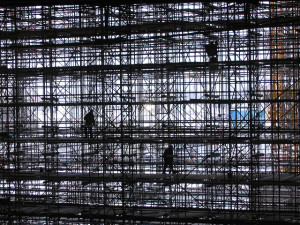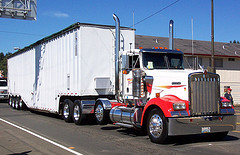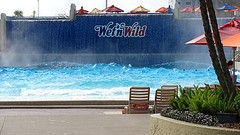The National Transportation Safety Board released a 14-page report on Monday citing a pair of employee errors as the main causes of a July, 5, 2009 monorail accident that killed a 21-year-old resort employee at Walt Disney World in Orlando, Florida.
The federal investigation has taken nearly two-and-a-half years to conclude that employee errors in combination with Walt Disney World’s lack of standard operating procedures contributed to the tragedy that occurred when one train traveling in reverse smashed into another.
The accident supposedly happened around 2 a.m. when Disney’s monorail train was shutting down for the night. One train was supposed to be exiting the Epcot loop and onto the “switch beam,” which required the train to be operated in reverse. The track switch was allegedly never activated which caused the train to reverse down the Epcot line and slam into another train killing the driver.
NTSB is not the first agency to cite Disney for its role in the accident. The U.S. Occupational Safety and Health Administration cited Disney with four safety violations in its initial review of the accident that resulted in a $35,200 fine to the resort. NTSB estimated property damage at around $24 million.
NTSB and OSHA concluded that an employee in the monorail’s maintenance shop failed to position the switch beam properly. It was supposedly found that the manager was operating as the monorail system’s coordinator temporarily and was not in the system’s control tower when the track-switch procedure happened, so he could not identify the problem with the track.
Disney was faulted in three areas.
First, investigators found that Disney did not require employees to follow a monorail operating guide which shows drivers how to properly drive in reverse in a forward-facing position.
Second, NTSB found that Disney did not have a policy that required the monorail central coordinator to be stationed in the control tower to monitor train movements. This was found to be a major error on Disney’s part since the tower is equipped with a grid showing how the monorail beams are aligned and an emergency shutdown switch to stop all movement in case of an emergency.
Third, Disney apparently allowed employees in the monorail shop to use the video monitors to confirm that a train was not already on the beam before activating the switch, instead of using them to validate that the track had actually been readjusted following a command.
All three issues were supposedly referred to in a series of policy changes made by Disney management in an effort to improve operations.
According to the chief safety officer at Disney, monorail system operations were already enhanced before receipt of the actual NTSB brief, which apparently offers no additional suggestions than what has already been imposed.
Commuter rail and train accidents do happen in Florida, despite the ultimate lack of commuter transportation throughout the state. Monorails are mostly located in vacation resorts throughout the U.S., but can also be found in airports, amusements parks and even business districts. When an employee of a city, state or privately owned monorail system is injured or killed on the job, worker’s compensation benefits can kick in for the victim’s family. This can include wage loss payments and any medical expenses, but like most legal claims there is a time cap on when a claim can be filed. If you are the family member or dependent of an employee who was killed from injuries sustained throughout the course of employment, the knowledgeable Florida Worker’s Compensation Attorneys at Whittel & Melton can inform you about workers’ compensation death benefits that you and your family may be entitled to.
According to the Bureau of Labor Statistics, as of 2010, 4,547 fatal workplace injuries occurred across the United Stated, just faintly below the 4,551 fatalities that happened in 2009. At Whittel & Melton we recognize that a lawsuit cannot heal the loss of a loved one, but if the deceased was a wage earner and provider for the family, it is important to consider your future financial stability. Our attorneys can take on the burden of legal and financial matters so that you can focus on your family’s healing process. When a workplace accident caused the wrongful death of an employee, a spouse, child, parents or siblings may be entitled to benefits like monetary compensation. We may be able to help you recover compensation for:
• Medical and funeral expenses
• Loss of income and insurance or pension benefits
• Loss of companionship
• Punitive damages
Sometimes there are third party claims that factor into fatal workplace accidents. Third party claims involve a person or organization other than the injured party or his or her employer whose negligence may have contributed to an employee’s injuries or wrongful death. Third party claims can possibly provide more financial benefit to beneficiary dependents’ than what is typically available from workers’ compensation insurance.
Continue reading
 Florida Personal Injury Lawyers Blog
Florida Personal Injury Lawyers Blog





